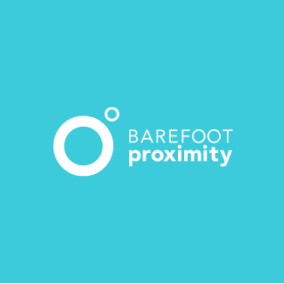Worldwide advertising agency network, BBDO, focuses on the work ahead of all else.
Originally founded in 1891, it’s the mastermind behind award-winning campaigns like Snickers’ ‘You’re Not You When You’re Hungry’ and Pedigree’s ‘Feed the Good’, both of which were shaped by an impactful insight into their respective target consumers.
The challenge
Using consumer insight to inform campaign strategy.
BBDO is no stranger to using data to inform campaign strategy. So when a leading client in the financial sector was looking to target fans of a global sporting event, consumer data was a crucial starting point.
As with many brands in their sector, the challenge was to change the way people think about using various methods of payment abroad and at major events.
“The aim was to get people to feel comfortable and confident when they travel, and to see this brand’s services as a better option to facilitate transactions.
This confidence and ease of use meant they would no longer miss a moment of action”, says Chris Daniele, VP and Director of Digital Analytics and Measurement Lead at BBDO NY.
“Fast and simple usage, plus exclusive access and benefits around this event, enabled us to overcome every fan’s fear of missing out.”
This is where consumer insight came into play.
The action
Identifying the motivations behind the actions.
The team started by using GWI data to develop different segments of fans in key markets, based on behaviors and needs.
“Fans of this event share a global common ground, but their unique needs and behaviors can vary by market”, Chris continues. “So it was crucial to assess fan behaviors, using granular data across key markets.”
Starting with a U.S.-based audience, the team then expanded their search to include a global view and ensure there were opportunities across the board.
They then dug deeper.
Using GWI, the team could analyze far more than just the demographics involved.
“Being able to examine who these people are and how they behave is where the value lies for us”, says Chris.
“Even if you identify an audience segment as being a millennial sports fan, they’re not all the same people.
Some like to stand out in a crowd, some are more tech-focused, some like to spend time with family and friends, some like to explore food and take pictures, go on adventures, and so forth.”
Once the attitudes behind their target audiences’ behaviors and levels of brand trust were identified and confirmed, the team could build out the campaign with confidence.
“We trust our sources and we trust our instincts. But if the data we see supports what we’re doing, that’s success. It’s then up to us to carry that forward.”
The result
Challenging traditional perceptions.
The key data-driven message of the campaign was:
The brand will help fans overcome FOMO, whatever shape or form it will take, with speed and ease.
It successfully challenged common misconceptions target audiences had around traveling, moving their opinion away from worrying about the risks associated with transactions in global markets to placing their trust in the brand and its unique offerings.
Without GWI, Chris says the campaign would not have been such a success.
“This data allows us to create and validate audiences on a global scale, which is something not a lot of agencies have at their disposal. This enables us to confidently go forward when we need to, with global audiences and strategies.”
BBDO continues to use this data to inform leading campaigns and strategy, and measure their impact, equipping the teams with an in-depth knowledge of their global audiences.
“GWI is easy to use and learn. It just makes it so much easier for agencies to get a feel for global strategy.”
“As our global needs continue to expand, the tool is becoming even more central to developing those initiatives.”
This, he says, is central to solidifying your status as a data-driven agency in today’s landscape.
“As a data-driven agency, we can’t lead out there without doing the leg work, development and strategizing, while also making sure our findings are valid, accurate and applicable.
If you claim to be data-driven, you need to prove that.”









































